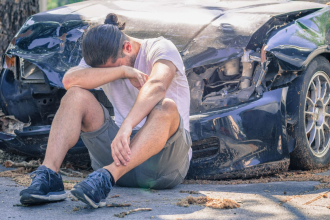A road accident can happen in an instant, but the effects may linger for weeks, months, or even years. From physical injuries and emotional trauma to insurance battles and legal complications, the aftermath can be overwhelming. What you do in the moments immediately following a crash can have a profound impact on your health, your finances, and your ability to recover fully.
Whether you’re a driver, passenger, cyclist, or pedestrian, knowing how to respond to a collision is crucial. Taking the right steps can ensure your immediate safety, protect your legal rights, and set the stage for a smoother recovery process. Here’s what you need to prioritize after an accident to safeguard your long-term well-being.
Prioritize Safety and Assess the Situation
Immediately after a crash, your first priority should be safety. If possible, move your vehicle out of traffic to prevent further danger. Turn on your hazard lights and, if you have them, use road flares or warning triangles to alert other drivers.
Once you’re out of immediate harm’s way, check yourself and others for injuries. Don’t assume you’re unharmed simply because you don’t feel pain, adrenaline can mask symptoms. If anyone is injured or if the vehicles are immobile in a dangerous spot, call emergency services right away.
Remaining calm and focused is difficult but critical. Panic can impair judgment and lead to poor decisions that compromise your safety and well-being.
Protect Your Legal Interests
Depending on the circumstances of the accident, you may need legal assistance, especially if the crash involved commercial vehicles, serious injuries, or multiple parties. When large trucks are involved, the legal implications can be far more complex. Understanding how to navigate these situations can be daunting without professional guidance. This is where securing legal help for truck crashes and other serious accidents becomes vital. An experienced attorney can help preserve evidence, communicate with insurers, calculate appropriate compensation, and ensure your rights are protected. They can help determine whether the accident was caused by driver negligence, mechanical failure, or regulatory violations.
Engaging a legal professional early in the process can improve your chances of receiving a fair settlement and reduce the stress of managing the aftermath on your own.
Contact Authorities and File a Report
No matter how minor the collision appears, it’s important to contact local authorities and request that a police officer come to the scene. A police report provides an official record of the incident, which will be invaluable for insurance claims and any future legal action.
The responding officer will gather statements, take photographs, and collect other evidence. Be honest and factual in your statement, but avoid admitting fault or speculating about the cause. Even a seemingly harmless apology can be misinterpreted later.
If law enforcement is unable to respond, for example, in a minor fender-bender, most jurisdictions still allow you to file a report at a local station or online within a certain timeframe.
Seek Immediate Medical Evaluation
After an accident, you might feel tempted to skip medical treatment, especially if you don’t have visible injuries. Many common car crash injuries, such as whiplash, concussions, or internal bruising, may not present symptoms until hours or days later.
A prompt medical evaluation ensures that injuries are identified and documented early. This is important for your health and for insurance and legal purposes. Delaying care may allow conditions to worsen and can weaken your credibility when seeking compensation for your injuries.
Always follow through with recommended diagnostic tests and treatments, and keep records of every appointment, prescription, and report.
Notify Your Insurance Company Promptly
Most insurance policies require prompt reporting of accidents. Contact your provider as soon as possible, ideally within 24 hours. Provide them with the basic facts of the incident, and let them know if you’ve already filed a police report or sought medical attention.
Avoid speculating about fault or minimizing your injuries during this initial call. Keep your explanation factual and to the point. Your insurer will guide you through the next steps, which may include vehicle repairs, claims assessment, and coordination with the other party’s insurance.
Keep a log of every interaction you have with your insurance company, including dates, names of representatives, and the information exchanged.
Focus on Recovery and Follow Through with Care
Recovery doesn’t end once the paperwork is filed and your car is repaired. Physical rehabilitation, mental health support, and follow-up medical care are important for a complete recovery. It’s common for accident victims to experience anxiety, sleep disturbances, or post-traumatic stress, even after minor collisions.
Keep up with any prescribed physical therapy or treatment plans. Attend all follow-up appointments and communicate openly with your healthcare providers about lingering symptoms. Emotional healing is just as important as physical recovery, and support from a counselor or therapist may be helpful if you’re feeling overwhelmed or anxious about driving again.
Every action taken after a road accident can influence your long-term well-being. By acting promptly and thoughtfully, you protect your health and position yourself to recover financially, emotionally, and physically. Road accidents are unexpected, but your response can make all the difference in the road ahead.













